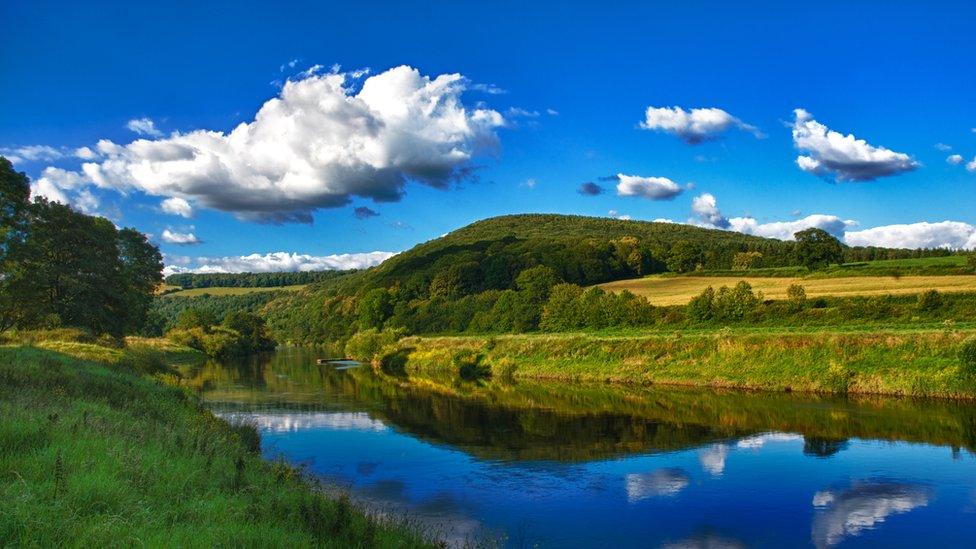River Cleddau group forms to stop 'ecological disaster'
- Published
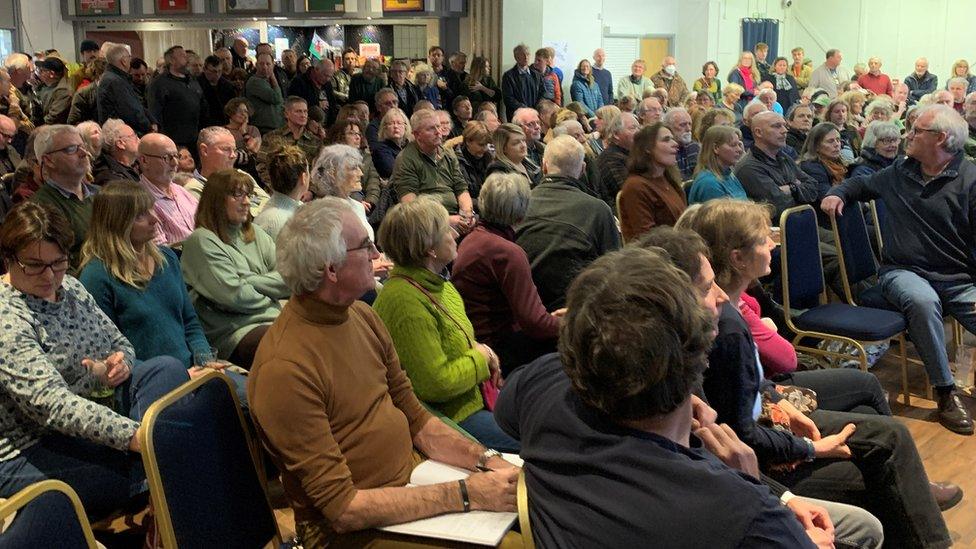
The meeting was held at Haverfordwest Rugby Club on Friday evening
A packed public meeting has been held over concerns about water quality in the Cleddau estuary in Pembrokeshire.
It was called to launch a group called the Cleddau Project, which aims to stop pollution and restore the river to a clean condition.
Campaigners said they want to stop it facing "irreversible decline" due to the impact of pollution and sewage among other factors.
Natural Resources Wales said it looked forwarded to working with campaigners.
Speaking at Haverfordwest Rugby Club on Friday evening, chair of the meeting Gus Stott said he loved the Cleddau and wanted to "aid it back to some kind of recovery".
Project member Simon Walters, who has always lived near the Pembrokeshire river, said: "The river, the brooks and the the wildlife have all been decimated.
"I think we've tipped the balance and we're on a downward spiral.
"We want to educate the public to the problem," he said.
Fearing an "ecological disaster" because of the impact of "pollution on an industrial scale", he claimed NRW had "failed in its duty to protect the river".
The eastern and western Cleddau rivers join together at Picton Point near Haverfordwest to form the Daugleddau estuary.
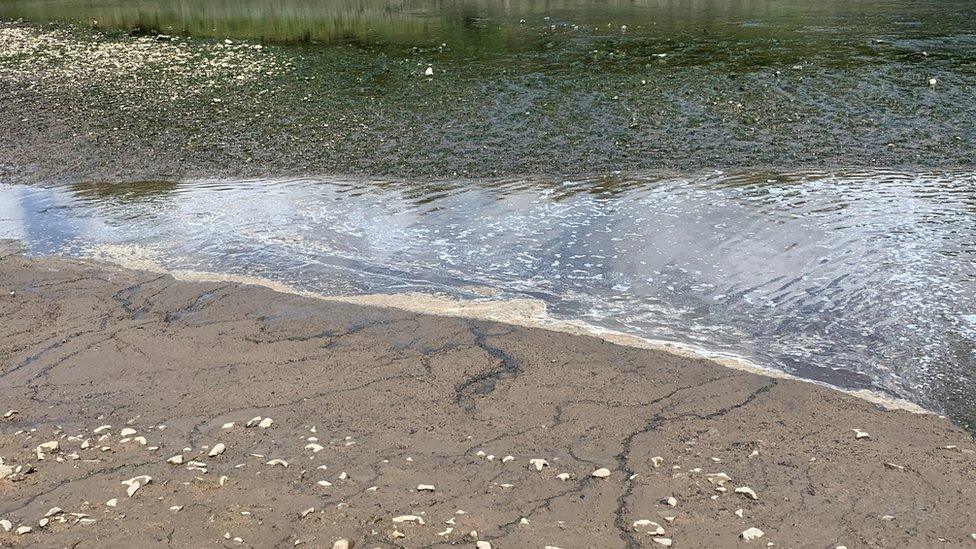
Brown froth can be seen on the banks of the western Cleddau
The estuary extends for some 16 miles (25km) south, linking up the Carew and Cresswell rivers on its way to meet the sea at St Anne's Head.
The group is hoping to launch a number of Citizens' Science projects to monitor the health of the river.
The aim will be to recruit volunteers to provide water samples from the river on a regular basis.
The public will also be able to report pollution through a portal on the group's website, helping offenders to be "held to account".
A Natural Resources Wales spokesperson said: "Water quality in some of our rivers throughout Wales is a widespread problem and the Cleddau is no exception. Pollutants, in particular nitrate, phosphorus and sediment, are having a detrimental impact on water quality.
"Agricultural sources are contributing to water quality failures. Sewage and storm sewage overflow discharges from water industry sources worsen the pollution problem, along with other factors such as local industry.
"We are playing our full part in working to prevent pollution and improve water quality, using all the resources at our disposal to prevent and minimise pollution, carrying out more inspections and prosecuting those who commit the most severe or deliberate damage."
- Published28 June 2023
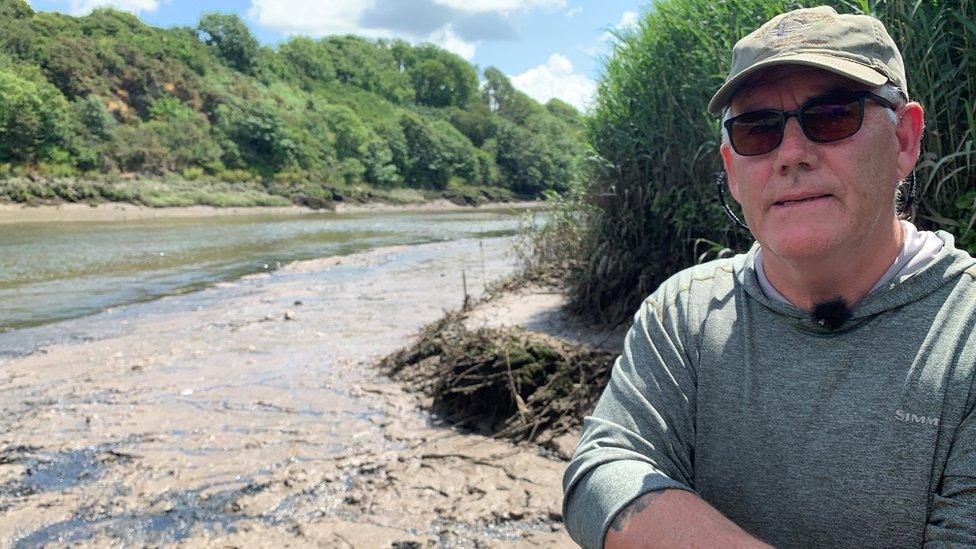
- Published30 March 2023
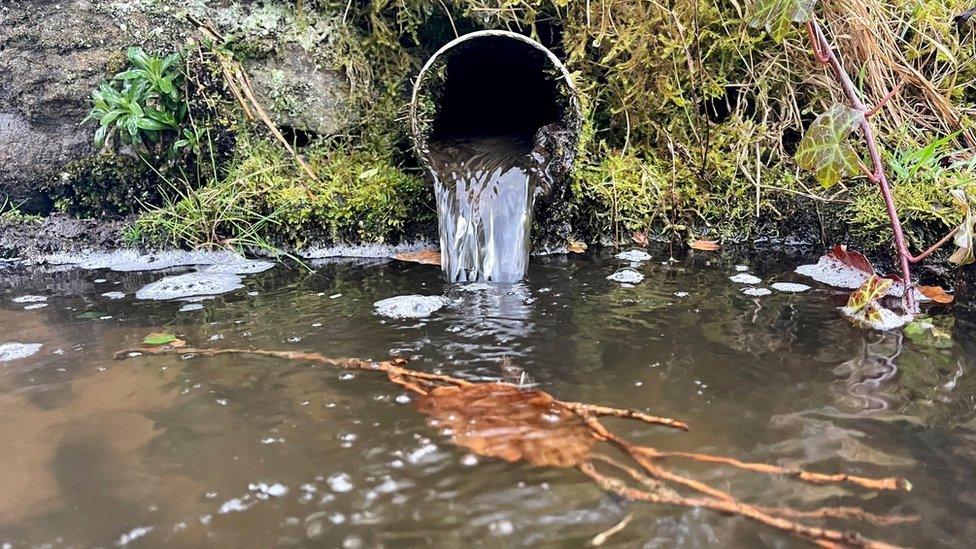
- Published14 March 2023
